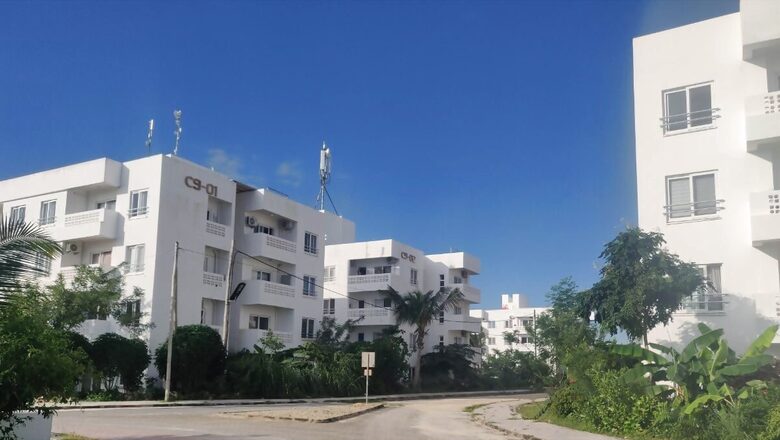
views
From Sundar Pichai to Satya Nadella, many Indian-Americans hold top positions in global firms today. But India’s higher educational institutes are yet to attain higher rankings at the international level. The government is expecting to change the game by allowing its most prestigious Indian Institutes of Technology (IIT) to have physical campuses in foreign lands.
IIT Madras’ Zanzibar (in Africa) and IIT Delhi’s UAE campuses are first among their peers. However, many private players have already achieved the feat of setting up campuses abroad and they now believe that having a foreign campus alone is not going to make India ‘Vishwaguru’.
Professor V Ramgopal Rao, who first proposed to the Ministry of Education, to allow IITs to set up campuses abroad in 2020, spoke exclusively with News18.com in which he warned that having satellite campuses alone is not going to help India’s colleges or universities reach their full potential. Instead, foreign campuses need to work closely with local campuses back home.
“It is important to build synergy between the foreign campus and the main campus back in India. Students at foreign campuses should get to spend at least one semester in the main campus here. This will result in more international students and diversity in Indian campuses, resulting in better ranking. Foreign nationals invariably pay a higher fee as they also seek better infrastructure. The higher fee paid by these students can in turn be utilised to improve infrastructure back home which in turn will attract more students,” he said. These campuses can be used to start joint projects and student exchange programmes, he added.
“When I wrote the letter to the Ministry of Education to allow IITs to set up foreign campuses, my reasons were to improve the perception, diversity, revenue, and ranking,” he added.
Rao, who has headed the IIT Delhi from 2016 to 2021, is currently working as the Group Vice-Chancellor for the Birla Institute of Technology & Science (BITS) Pilani. BITS has campuses located in Pilani, Hyderabad, Goa, Mumbai, and Dubai.
While IIT Delhi is set to have its foreign campus, BITS Pilani already has had a presence in Dubai since 2000. Drawing from the experience of having BITS in Dubai for over 20 years now, Rao said, “When setting up campuses abroad, we need to go with market forces and not apply Indian template as is. We need to cater to the local requirements and offer tailor-made programmes.”
In UAE too, Indian institutes are known for their IT courses. Most of the students there too, like in India, prefer computer science and management courses. Indian institutes setting abroad need to use this good reputation for IT courses to their advantage, according to Rao, and then build on it. BITS, for instance, will offer construction management in Dubai. It also offers four-year BS courses and not B. Tech. Further, the entrance exam abroad is based on international exams including SAT as opposed to JEE for Indian campuses.
Focus on Research and Revenue
SP Jain School of Global Management which has campuses in Sydney, Singapore, Mumbai, and Dubai, will soon be the first Indian institute to set up a campus in the UK without any partner university. Nitish Jain, president of SP Jain School of Global Management claims that Indian institutes lack in research. “Foreign institutes are ranked way higher because of the research they produce. The quality of research in India does not compare to an Ivy League. The research quality is a major point for international rankings. Indian colleges lack world-class research and funds required for the kind of research being pursued abroad. Foreign universities have more money than Indian universities. They are very rich and have more money to spend on research. India institutes are still largely focused on placements and salaries.”
When setting up an institute abroad, their government representatives look for everything including governance in the institute, and student outcome among others, said Jain. Talking about his recent experience, he said both he and his team were interviewed by the local authorities.
Going Beyond STEM
While most of the institutes abroad offer STEM-related courses, Jamia Millia Islamia is set to build a ‘brand Jamia’, aiming to have a foreign institute of its own that will go beyond and focus on areas including Urdu, and communication studies among others.
Vice Chancellor of Jamia Millia Islamia (JMI) Padma Shri awardee Prof. Najma Akhtar said, “Perceptions of Indian institutes abroad are based on foreign rankings. While some Indian universities have good rankings at international levels, others do not do well. We need to work on certain areas including research to improve our rankings. The success stories that will come out from our universities which have gone abroad will also set paths for others. If Indian universities go abroad and survive it will create a brand. My aim is to set up a brand Jamia.”
She said the varsity already has working relationships with many countries and it aims to build on it further and have a foreign campus of its own. Foreign nationals who come to study in India via several collaborative partnerships, and study-in-India scholarships also act as ambassadors. She says foreign nationals who come to study at Jamia get access to quality infrastructure and facilities and are also introduced with Indian cultural experiences so they can take home “rich” experience. She told News18 she wishes to build on similar patterns while moving abroad.


















Comments
0 comment